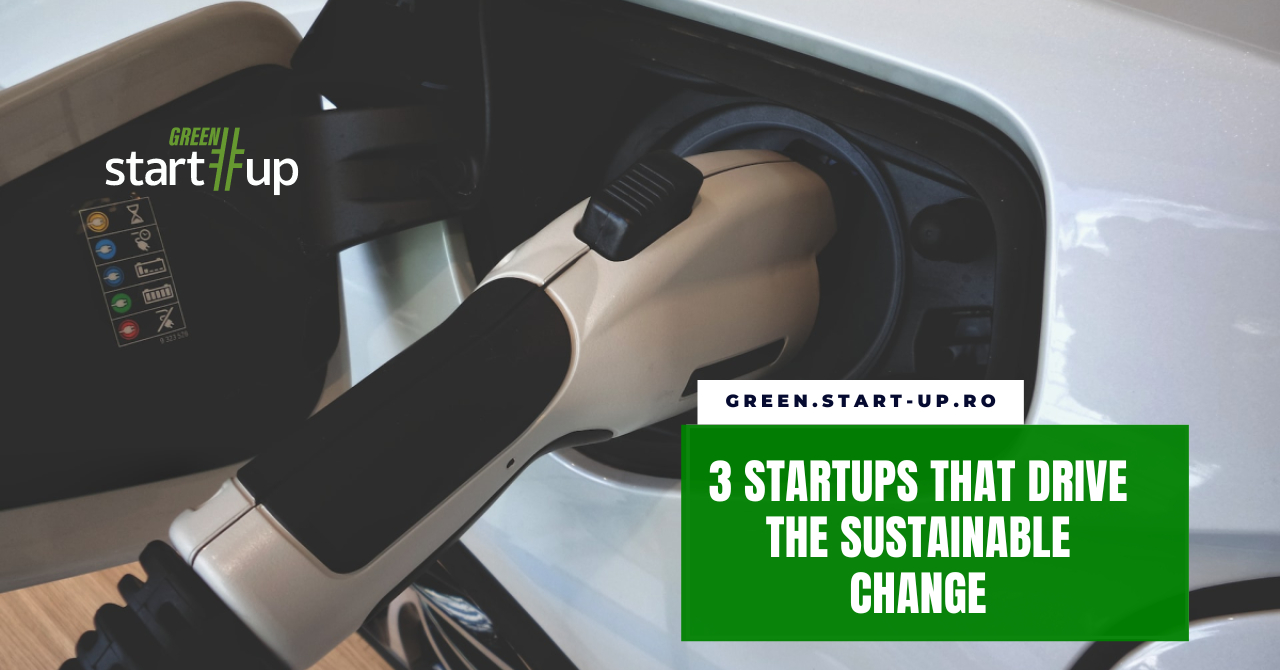The truth is that the automotive sector can't be ignored when it comes to sustainability, as there are many solutions emerging from small companies, but also from well-established players. Today, we'll focus on the underdogs that will shape up the way we commute in the future.
Micro-mobility services in Romania
Romania's automotive market is quite different from Western Europe, as Romanians prefer larger vehicles, but luckily, at least electric cars started to gain traction here.
But large SUVs and station wagons aren't suitable for the city environment, where every inch of space matters. This is where E-Mobility Rentals comes in with its own solution for clean urban personal transport.
E-Mobility Rentals is a Romanian company, active since 2022, that created the first electric vehicle rental service with exchangeable batteries through its own network of charging stations and replacing discharged batteries (Swap Stations), in Europe.
What makes E-Mobility Rentals special is the charging infrastructure, which is not classic one, with charging stations and cables, because this might discourage customers from adopting this transport alternative. Instead, the Romanian micro-mobility provider thought that a good alternative for charging the vehicles is filling the batteries in specially-placed stations, where drivers can put them and take them already-charged.

For now, E-Mobility Rentals engineers designed the purchased vehicles to only work in this mode, thus, traditional charging isn't available at stations, yet. However, should driver show an increased interest for this procedure, the company might add the possibility later on. Until then, a special adapter can be used to fill the batteries at your home's power outlet.
Each charging locker currently supports as many as 20 batteries at once and a full charge takes place in 4 hours. The required electricity is supplied by the partner where the charging lockers are installed.
Some of the features of the van that we've driven are electric windows, a tablet on board for the various entertainment system options and the reverse camera, as well as a ventilation system. The vehicle's backup camera is helpful, although not crucial on the van model and its quality is actually surprisingly good.
E-Mobility also partnered with Glovo, one of the most popular food delivery services in Romania and some of the results include 24.894 liters of saved gasoline, as well as 49 battery-powered vehicles actively being used in the fleet.
"By the end of this year, we estimate that couriers will make 5.400 swaps, while driving for 324.000 kilometers with no emissions (for which they would have had to use 32.400 liters of gasoline) and they will save in the process around 73 tons of CO2 emissions from the atmosphere", E-Mobility Rentals officials said.
Turning your old car into an EV
This might strike home for car enthusiasts, as maybe they currently have an older car, which may not be compliant with your country's emission standards, resulting in the need of an upgrade. Still, that doesn't necessarily mean that you have to give up on your old fossil-car, which could be converted into an electric model.
Dave Budge, co-founder of Jaunt Motors, which merged with Zero EV to form Fellten, told us more about this in a story article published at the very beginning of 2023.
Instead of trying to develop a new electric car from scratch and compete with existing companies, such as Tesla, for example, Jaunt Motors at the time innovated and came with the idea that maybe an old 4X4 vehicle could be battery-powered as well.
The company started about three to four years ago with the idea to build systems which can be used to convert old cars, Land Rovers Defenders at first, into EVs.

The reason for this, the co-founder detailed, was because "there is a sort of nostalgia almost anywhere in the world, because when you think of a Land Rover, when you think of going in a safari in Africa or in outback Australia, that's the kind of car that you think of."
Thus, by combining the old design of a capable off-roader with the new technologies that EVs have, people can have a more reliable experience, while reducing pollution to a minimum.
According to Dave, turning an old Land Rover or a Porsche in a battery-powered car costs about 70.000 USD, all the technologies and even air conditioning included.
While this might seem high, it is important to know that there is a lot of work to be done when converting an old car into a modern, zero-emissions vehicle, such as fitting all of the equipment.
"We'll be moving into a new factory, growing from a prototype workshop into a larger version of that, but also a large manufacturing and assembling facility, as well", Dave told us at the time, meaning that, hopefully, more people could soon start to enjoy their existing cars in a new package.
The age-old lithium battery might stay young for longer
Lithium-ion battery aging seems to be one of the major issues the industry has to overcome, as it usually doesn't take more than a few years for the cells to lose a good chunk of their capacity. Some companies, such as Iontra, might have found innovative solutions to help with this issue.
Batteries age in a few ways, some of them being exposure to heat and the accumulation of charging cycles. Charging any lithium-ion battery can accelerate the degradation of the cells, since this process generates heat. Also, the faster the charging, the more heat is usually generated.
Iontra's senior management team is specialized in working with technologies for energy storage solutions, EVs, lithium-ion batteries, software-as-a-service and semi-conductor platforms.

While other companies have focused on developing new battery compositions for their cells, Iontra is making use of what's available in current technologies, such as lithium-ion batteries and future-state next gen batteries by adjusting the way these are being charged.
Daniel Higgs, Director of Revenue at Iontra, with whom we talked in an exclusive interview, shared with us that "our goals for the coming year or two are to continue to support our customers through their new product development and commercialization launch efforts."
Hopefully, more companies reached to Iontra to develop more durable batteries, so that further testing can be done and even more customers could benefit from healthier cells over time.
These are just some of the startups from the automotive industry that we wrote about on Green Start-Up this year and that are working tirelessly to give us more sustainable solutions that will allow us to enjoy the pleasure of driving.
 Mihai - Cristian Ioniță
Mihai - Cristian Ioniță












Any thoughts?